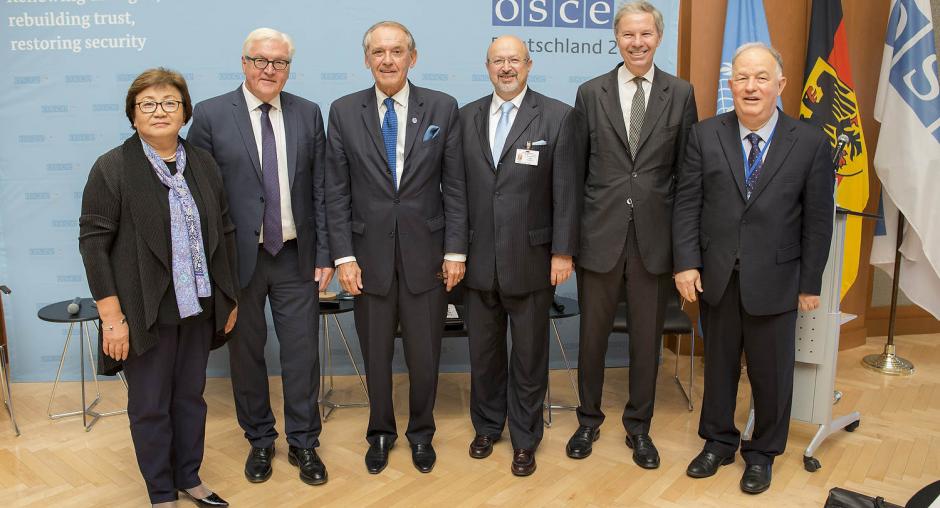Strengthening OSCE capacities in civilian crisis management discussed at high-level side event at UN General Assembly

NEW YORK, 23 September 2016 –“We are committed to the OSCE’s inclusive, civilian and comprehensive approach covering the entire conflict cycle: from early warning and prevention through crisis management to post-conflict peacebuilding,” OSCE Chairperson-in-Office and German Foreign Minister Frank-Walter Steinmeier stressed at a high-level event on “The Force of Civilian Crisis Management – Strengthening the Capacities of the OSCE as a Chapter VIII Organization” that took place on the margins of the United Nations (UN) General Assembly on 22 September 2016.
“The UN and the international community should make optimal use of the added value of the OSCE in addressing current crises, in particular its civilian crisis management capabilities,” said Steinmeier.
Serbian Deputy Prime Minister and Foreign Minister Ivica Dačić as a member of the OSCE Troika highlighted the strength of the OSCE in addressing conflicts, thanks in particular to the flexible nature of its tools. Austrian Federal Minister for Europe, Integration and Foreign Affairs and incoming OSCE Chairperson-in-Office Sebastian Kurz emphasized that the 2017 Austrian Chairmanship would continue efforts to strengthen the OSCE’s capacities along the entire conflict cycle.
During the side-event, 17 foreign ministers discussed ways to enhance the OSCE’s capabilities with high-level speakers including UN Deputy Secretary-General Jan Eliasson, former President of the Kyrgyz Republic Roza Otunbayeva, President of International Crisis Group and member of the OSCE Panel of Eminent Persons Jean-Marie Guéhenno, and Chief Monitor of the OSCE Special Monitoring Mission to Ukraine Ertugrul Apakan.
Participants stressed the central role that the OSCE plays as a regional arrangement under Chapter VIII of the UN Charter in addressing current crises in the Euro-Atlantic and Eurasian region and called for enhancing that role. They highlighted in particular the need to strengthen both the OSCE‘s legal personality and the Organization´s capacity to respond effectively in preventing and resolving conflicts, including by enhancing the role of the Secretary General and reinforcing the engagement of women across the conflict cycle. Closer co-operation and co-ordination between the OSCE and the UN, as well as with other international and regional organizations, should also be strengthened.
In his concluding remarks, OSCE Secretary General Lamberto Zannier expressed his hope that participating States would draw on these and other recommendations to strengthen the Organization´s capacities along the conflict cycle at the 2016 OSCE Hamburg Ministerial Council in December.
